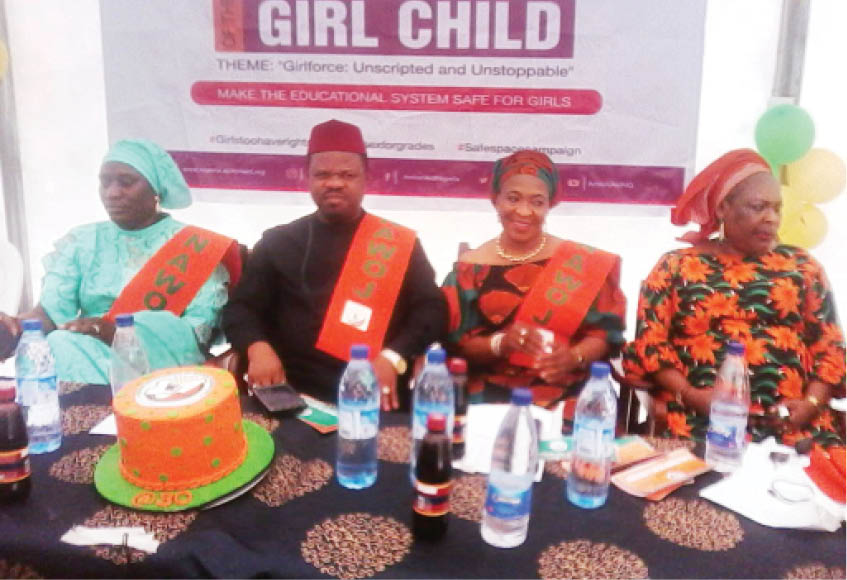Girl Child Day: NAWOJ, FOMWAN express worry over number of out of school girls
Chairperson of Nigeria Association of Women Journalists, NAWOJ, Kwara Chapter, Mrs. Ayobola Olupinla, has expressed worry over the number of girls, who are out of school. Olupinla told the News Agency of Nigeria, NAN, in Kwara on Friday, that out of the 13.2 million out of school children in Nigeria, 7.93 million were girls. “This […]

Chairperson of Nigeria Association of Women Journalists, NAWOJ, Kwara Chapter, Mrs. Ayobola Olupinla, has expressed worry over the number of girls, who are out of school.
Olupinla told the News Agency of Nigeria, NAN, in Kwara on Friday, that out of the 13.2 million out of school children in Nigeria, 7.93 million were girls.

“This disturbing figure represents 6.67 per cent of the Nigerian population, hence one of the cardinal objectives of NAWOJ is the provision of quality education for all especially women and girls.
“Furthermore, NAWOJ advocates for the education of the girl child, which is fundamental in fighting poverty, ignorance and diseases in the state and the nation,” she said.
Also, Mrs. Biliqees Oladimeji, former deputy national president of NAWOJ called on the three tiers of government to make education free for the girl-child.
She said that the government should provide an enabling environment for the girl child to thrive without hindrance.
“Let us provide enabling an environment for the girl child to grow without any hindrance, she is fragile and require the right mentoring without abuse.
“Religious leaders should always add voice to her natural growth and development in their regular sermons,” Oladimeji said.
Similarly, the Federation of Muslim Women Association, FOMWAN, decried the inequality the girl child faces in accessing education, protection and legal rights, among others.
The association made this known during a sensitisation programme organised to mark the day in Jos.
Mrs. Muhibba Abdulrazak, the leader of FOMWAN in Plateau, said that enabling female education was crucial for national development.
She said the event was organised to awaken the consciousness of relevant stakeholders towards appropriate action, to address challenges girls face in the society.
She explained that education was encouraged in Islam because it was empowerment to break the shackles of poverty in society.
“Education is so important under the Islamic content, that the very first verse in the Holy Qur’an revealed to the prophet Muhammad (Sallallahu alaihi wa Sallam) commanded that, “Read, in the name of Lord, who creates” (Qur’an Ch 96:1).
“Indeed Allah’s command in the stated verse is not gendered specific, and the direction to search for knowledge is to be emphasised.
“The general belief (as originated from Ali bn Talib RA ) is that when you educate a man, you educate one but when you educate a woman, you educate a nation.
Girl- child education also prepares her to face reality in society and teaches her to be a good wife and mother. When she is educated, she realises the full potentials endowed in her,” she said.
Speaking at the event, Mrs. Rebecca Sambo, the commissioner of Women Affairs, said the ministry was committed to fighting the maltreatment of girls in the society.
Sambo, represented by Mrs. Blessing Bewarang, the Assistant Social Welfare officer of the ministry, urged the young girls to be serious with their studies and report any abuse on them.
Similarly, in a statement to mark the day, the leader of the Federation of Muslim Women Association of Nigeria, FOMWAN, Mrs.
Halima Jibril said that education was cardinal to the girl child to fight poverty, ignorance and diseases bedevilling the nation.
She called for deliberate efforts to bridge the gap and dissuade the perception that the girl-child was a second class citizen.
She said the association was advocating for a safe educational environment to ensure the access to quality education through sensitising key stakeholders.
Culled from The next edition
